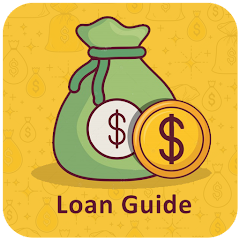Debt management can be a difficult topic to tackle. This article will provide some advice on how to deal with your debts. It will focus on assessing your debts and renegotiating their terms. You will learn how to prioritize and deal with high-interest debts Instant Loan Guide. Finally, it will cover how to regain control of your limited company debts.
Assessing your debts
What you need to do is take stock of your debts, assets, and liabilities in order to make a budgeted informed decision about your finances. The best way to do this is to create a spread sheet of your financials and stick to it. A well planned out monthly budget should give you a clear idea of where your hard earned money is going. With the right tools and strategies in place you should be able to find ways to increase your wealth and decrease your debts without too much of a sweat. And if you can afford it, consider consolidating your debts into one lower interest rate Instant Loan Guide.
This is the smart way to go about it, and the savings will be well worth the effort. Besides, it will also improve your credit rating, allowing you to pay off your debts sooner. While there is no single best method of debt reduction, a strategic approach accompanied by disciplined decision making and a little elbow grease will have you a better off in no time.
Renegotiating the terms of a debt
Renegotiation involves a process of changing the terms of a debt. This can include the interest rate, the repayment period, or the maturity date. The goal is to make the repayment process easier and to ensure the lender will be paid back. It is also a useful tool to prevent bankruptcy.
Borrowers with this type of pricing grid are also more likely to experience an increase in the interest rate. Another important factor is the financial health of lenders. Instant Loan Guide that are secured by a strong credit rating are less likely to be renegotiated. In addition, the costs of renegotiating the terms of a debt are higher when the borrower has many creditors.
Generally, it is important to consider the effects of renegotiation on both the borrower and the lender. This is especially important when a renegotiated debt is used for a business investment. However, renegotiation can be beneficial for the borrower as well, as it can help improve cash flows.
Renegotiations can also help with the choice of covenants in debt contracts. Typically, a debt contract will use covenants linked to the profitability of the borrower only when renegotiation costs are high. Moreover, renegotiation can lead to significant changes in the corporate capital structure.
Regardless of the purpose, renegotiation is a crucial component of private debt contracting. It provides efficient allocation of decision rights between the borrower and the lender. Nonetheless, few empirical studies have investigated renegotiation outside of bankruptcy and default. Therefore, more research is necessary. One study, for instance, examined renegotiations of 1,000 private credit agreements.
Those findings suggest that the initial terms of a loan have a limited influence on the sensitivity of renegotiation to changes in the borrower’s condition. Other factors that are likely to have an effect on the likelihood of a renegotiation are the credit and equity market conditions.
Prioritizing high-interest debts
When it comes to debt management, it’s important to prioritize high-interest debts. These can be anything from credit cards to student loans. Paying off these debts can give you the peace of mind you want. Plus, you can also leave more cash in your pocket each month. And this can help you get a jumpstart on other financial goals.
If you have multiple debts, it can be hard to prioritize your payments. The best way to do this is by making a priority list of your debts. This will help you stick to a repayment plan while saving you time. You can start by looking up your debts on your statements. It’s also a good idea to set up a monthly budget to help you keep track of your expenses.
A well-planned priority list will not only save you time but also money. For example, if you have a mortgage, you should make a payment every month. Similarly, if you have a car loan, you should pay off the lowest balance first. By making extra payments, you Instant Loan Guide can quickly reduce the amount of interest you’re paying.
There are also several other tactics you can use to prioritize your high-interest debts. One method is to list your debts by interest rate. However, this method may not be as accurate as you think. Remember that you can also prioritize your debts by type. Generally, unsecured debts are grouped together. Having these types of debts on your list can negatively affect your future credit score.
Finally, while it’s tempting to skip your minimum payments, this isn’t a good idea. Your creditors can file liens on your property, and you might Instant Loan Guide face a personal lawsuit from a debt collection agency.
Add Some : Thetimesproject









